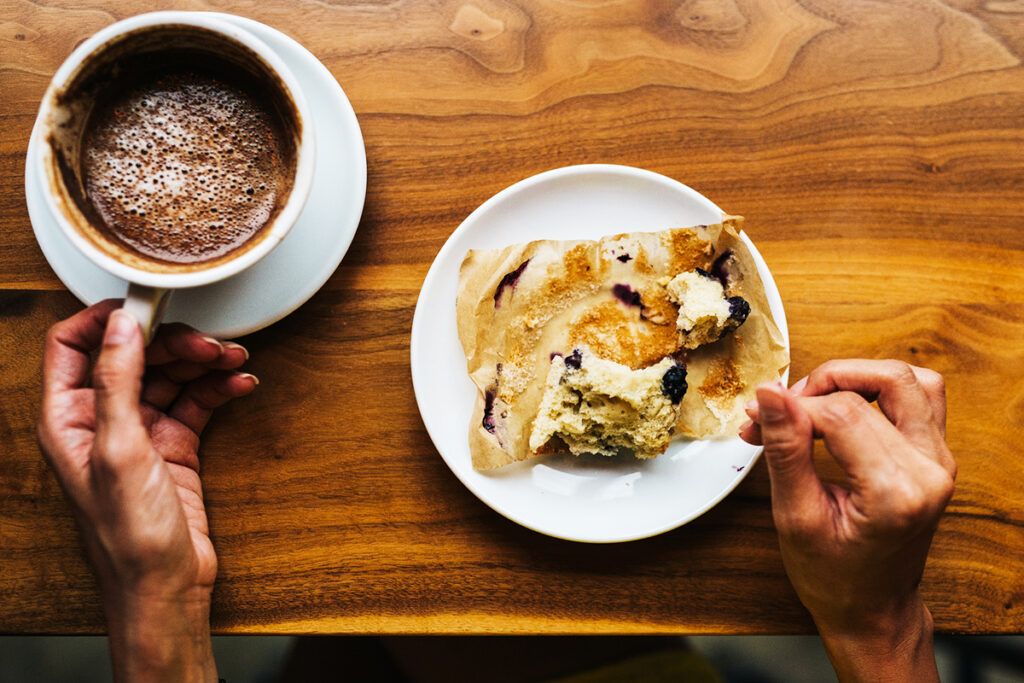Have a headache after eating? You’re not the only one.
Your head may hurt after eating because of the changes in blood sugar levels, the effect certain foods and compounds have on your blood vessels, and your specific reaction to these foods due to an allergy, food poisoning, or a health condition.
Moreover, some people who experience migraine may have a headache attack after eating certain foods.
How does food cause headaches?

Food and diet play a key role in how our brain reacts and functions — from how it releases certain chemicals to how it uses glucose. Some foods can trigger inflammation and changes in blood vessels.
According to a 2020 research review, certain foods and dietary choices can lead to headaches and migraine. These include coffee, chocolate, processed foods, and aged cheeses.
Certain conditions and factors can cause a headache after eating. These include:
- Food allergies and intolerances: Headaches and migraine attacks are common symptoms of food allergies and food intolerance, such as an intolerance to gluten.
- Food poisoning: When you have food poisoning after eating food containing bacteria, spoiled, or toxic food, you may experience vomiting and diarrhea. These can lead to dehydration, which can cause a headache.
- Postprandial hypoglycemia: This condition is also known as reactive hypoglycemia. It occurs when sugar levels drop after eating. This condition may result because of the overproduction of insulin. People with postprandial hypoglycemia have a headache 2–5 hours after eating.
- Cold stimulus: This happens when you eat something really cold, which triggers a headache. But this headache doesn’t last long — just a few minutes. It’s most commonly known as brain freeze.
- Temporomandibular disorder (TMJ): Headache is one of the symptoms of TMJ disorder, a condition characterized by pain and difficulty moving the joint that connects your jaw to your skull. If you have TMJ, you may experience a headache after eating because chewing your food can cause pain in the area and radiate to your head.
Foods to avoid
Foods that trigger a headache can vary from person to person, depending on underlying conditions and allergies. However, certain foods have a higher likelihood of causing a headache.
You can consider avoiding these foods and substances to reduce your chances of having a food-triggered headache.
- alcohol
- caffeine
- chocolate
- cheese
- processed food
- foods high in sugar, such as sodas and sweets
- beans and legumes, like garbanzos, lentils, snow peas, and fava beans
- smoked fish
- bread, pasta, and foods that contain wheat
- cured meats, like sausages, bacon, and ham
- foods containing monosodium glutamate (MSG)
- peanut butter
- some fruits like papaya, avocados, and citrus
Keep in mind that not all of these foods can lead to a headache. Other factors, like your environment, and your specific situation, whether it’s a food allergy or an underlying condition like diabetes, can contribute to a headache after eating.
Seeking professional advice
If you notice that you frequently experience a headache after eating, consider talking with a healthcare professional. They can help you identify what’s causing your headache and see if you may have an underlying condition that’s resulting in headaches after eating, like a TMJ disorder or postprandial hypoglycemia.
They may ask you to keep a food journal to identify the foods that may be causing your headache.
They may also recommend an elimination diet, in which you remove certain foods that you suspect may be causing your headache.
Your healthcare professional may also prescribe you medications, like triptans, to help relieve your pain.
Headache treatments
There are several ways to relieve a headache. You may try these options while you find what’s the underlying cause of your headache and determine which foods trigger this symptom.
- Over-the-counter pain relievers: You can try taking over-the-counter (OTC) medications to find relief from your headache. These include nonsteroidal anti-inflammatory drugs (NSAIDs), such as ibuprofen (Advil), naproxen (Naprosyn), and acetaminophen (Tylenol).
- Prescription migraine medication: If your headache is related to migraine, doctors may prescribe migraine medications. These include triptans like sumatriptan (Imitrex) and zolmitriptan (Zomig), ditans like lasmiditan (Reyvow), and gepants like rimegepant (Nurtec).
- Hydration: It’s important to keep hydrated. Certain factors that cause headaches, like food poisoning and allergies, can lead to dehydration. Dehydration can also result in headaches.
- Rest and relax: Stress and being tired can worsen your headache.
If you need help covering the cost of medications, the free Optum Perks Discount Card could help you save up to 80% on prescription drugs. Follow the links on drug names for savings on that medication, or search for a specific drug here.
